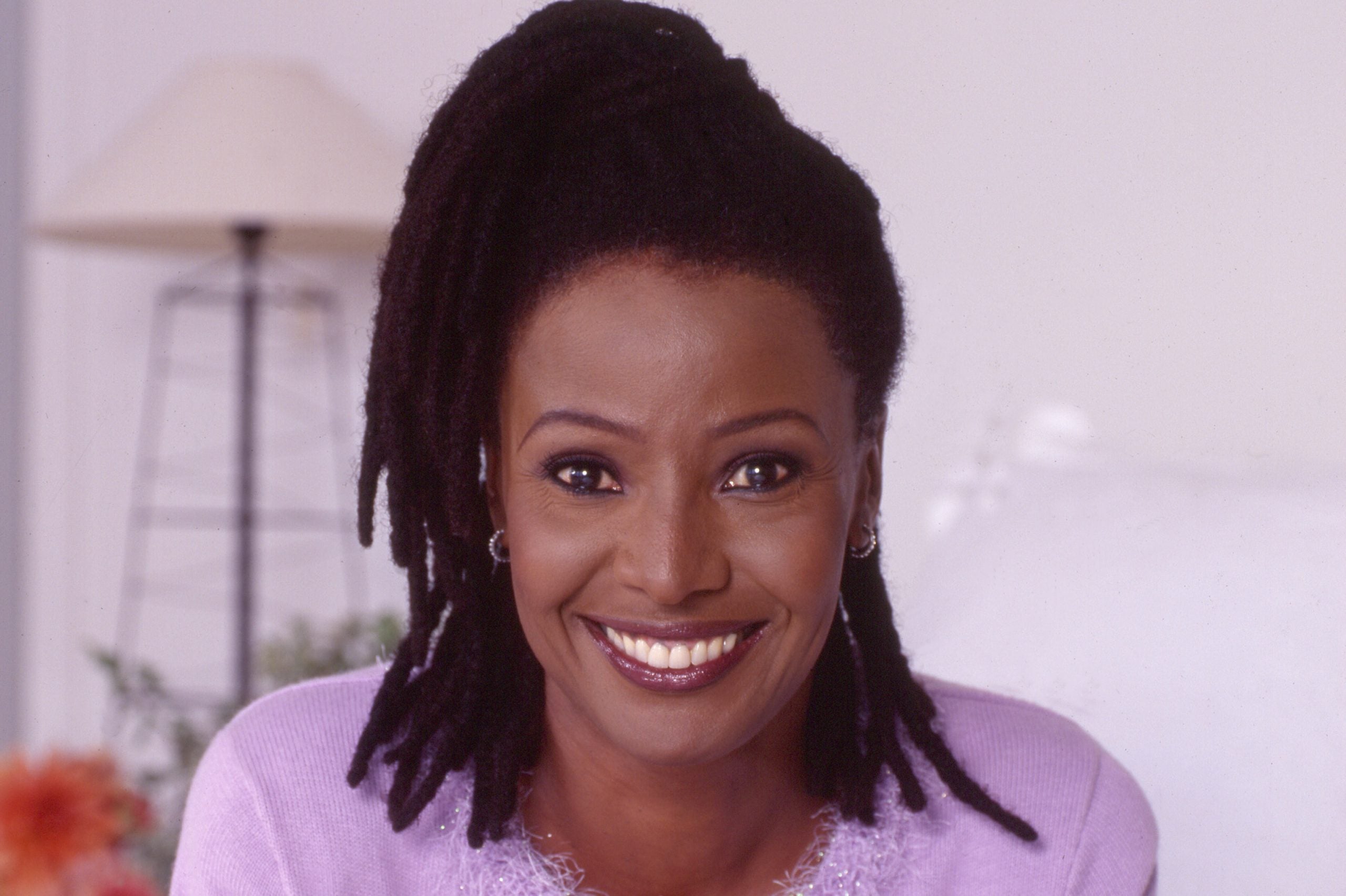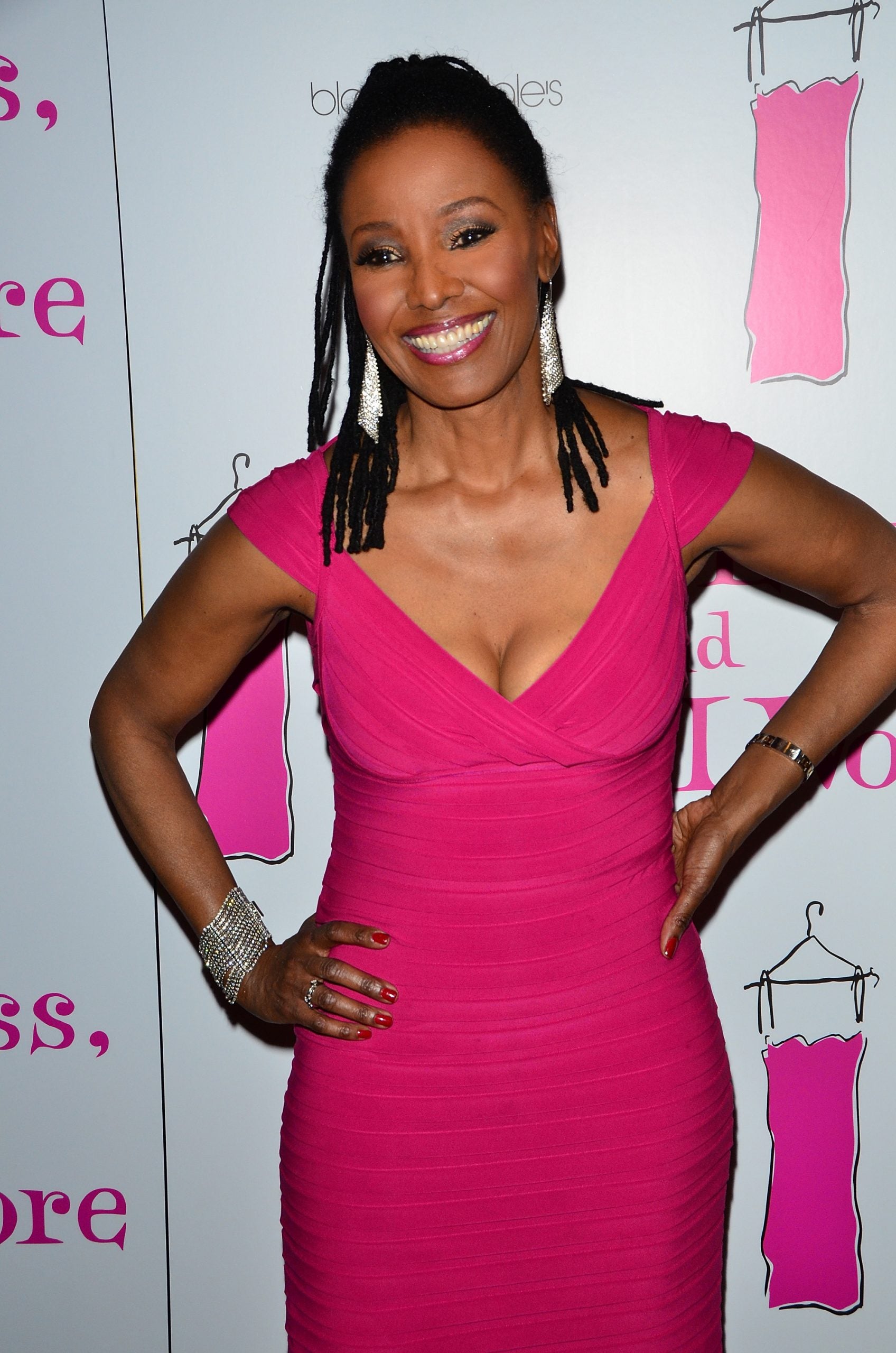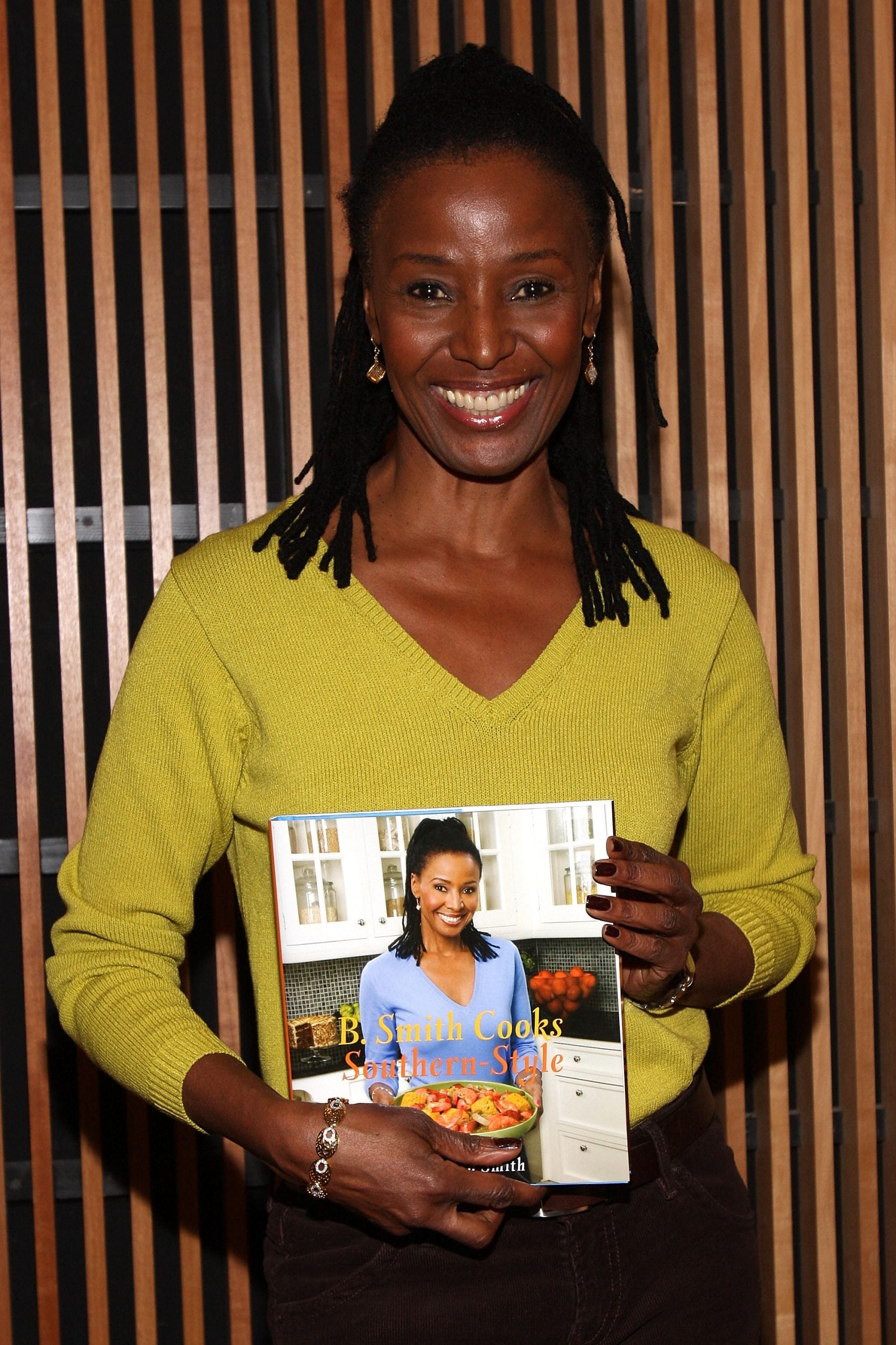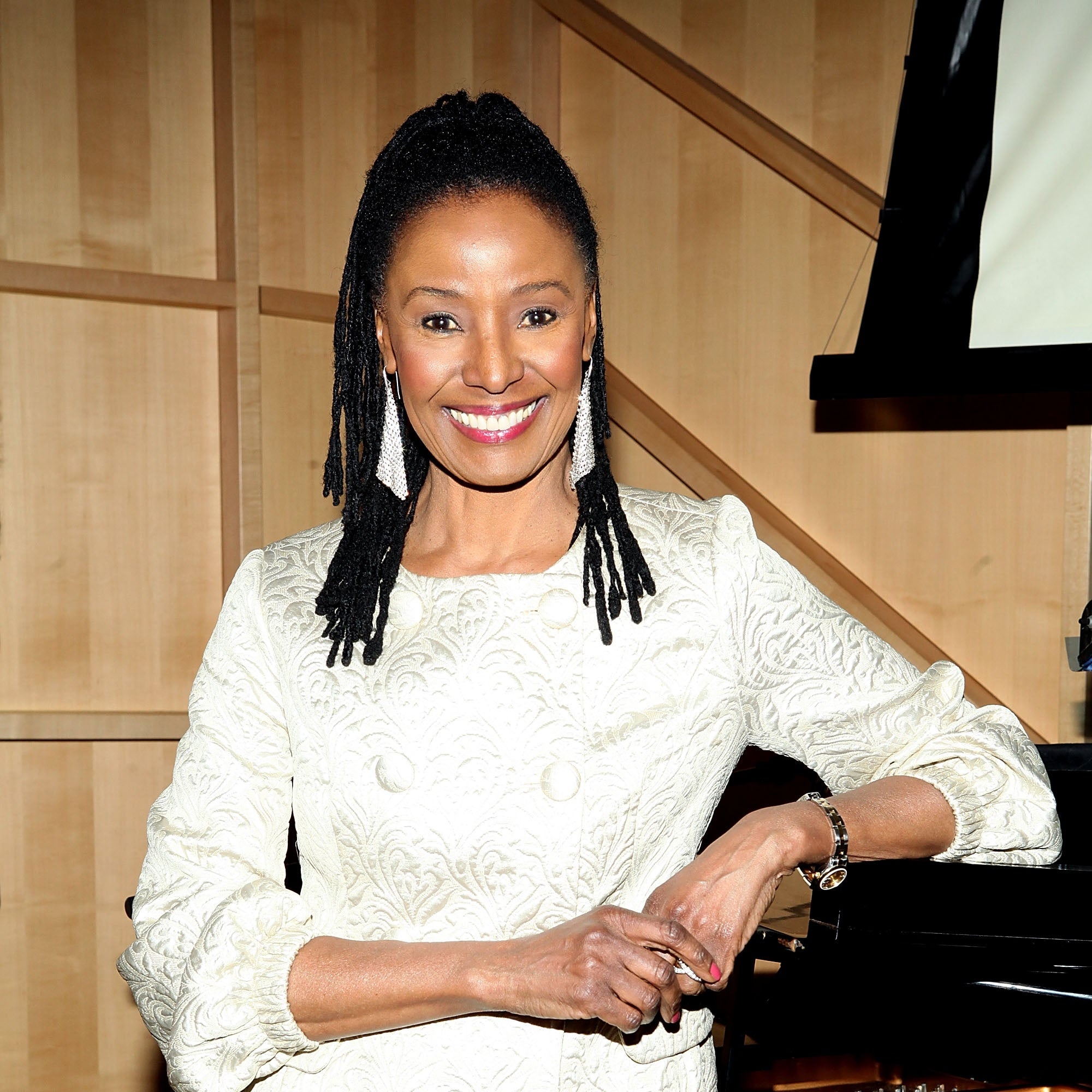
Barbara Smith, better known and beloved to fans as B. Smith, departed this world at the age of 70 after succumbing to a long battle with early onset Alzheimer’s disease. As a model, ESSENCE cover star, restaurateur, entrepreneur, lifestyle expert, author and more, Smith left behind a glowing legacy, in which she imparted many historic contributions as both an African American and a female pioneer in the culinary and lifestyle industry.
“For me, B. Smith was our Martha Stewart. No matter what she did, she did it with style, elegance and grace,” says celebrity chef, television personality and Cutthroat Kitchen winner Huda Mu’min, who considered B. Smith a friend and advisor. “Meeting her and being mentored by her was a dream come true…I will never forget the times that we spent together and what an inspiration her life was to me and so many.”
Before Black female chefs like Mu’min became ambassadors for major brands and recognized for their gastronomic talents on TV networks and before there was a lane for lifestyle influencers, home cook bloggers and food content creators; and before there were Gina Neelys, Ayesha Currys and other culinary empires for women of color, there was B. Smith, who carved out a path where her passion for food and home could occupy successful (and esteemed) entrepreneurial spaces.

“She turned herself into a lifestyle brand, which is still groundbreaking for women of color,” says Pinky Cole, who notably built her own successful plant-based province as the founder of the famed Slutty Vegan restaurants and forthcoming product line. “Seeing a woman of color accomplish so much in the food/restaurant industry was inspiring. It’s important for young people to see a mirror image of themselves and who they can become and that’s who she was to me. She left her mark on the world and the hearts of so many, and for that, I’m thankful and grateful.”
“B. Smith really opened the eyes to a lot of talented food people of color,” says Norma Jean Darden, a fellow food icon, whose career nearly parallels that of Smith’s. Darden and Smith first met each other as models signed to Wilhelmina Modeling Agency, where they both launched their professional careers before becoming restaurateurs.
“Toward the end of our careers [in modeling,] I remember going to a nightclub and seeing her sing. And neither of us was thinking about food,” recalls Darden, who shortly after that encounter published a cookbook that would later launch her New York-based Spoonbread restaurants. “Then [B. Smith] became a hostess at a trendy restaurant called America with Michael Weinstein down toward the Village. And next thing I knew; he had put her in her own place, B. Smith’s, which was a huge hit.”
Opened in 1986, Smith’s first restaurant on 8th Avenue in Manhattan marked the beginning of her food empire. Later, she would open restaurants in Sag Harbor, NY, and Washington D.C.
“Walking into B. Smith’s Restaurant in D.C. was a wow factor,” Mu’min reminisces on times spent with Smith at her D.C. restaurant. “It was a historic and beautiful 300-seat elegant restaurant in Union Station, the biggest restaurant there, which made you proud to know it was owned by a Black woman.”

Smith’s restaurant success led to cookbooks: B. Smith’s Entertaining and Cooking for Friends (Artisan Press); B. Smith: Rituals and Celebration (Random House) and B. Smith Cooks Southern-Style (Simon and Schuster). And in the midst of it all, Smith solidified herself as a much-respected media personality and lifestyle expert with her TV show B. Smith with Style and several guests appearances on news, talk, and entertainment shows. In 2001, Smith even introduced her B. Smith with Style Home Collection with Bed, Bath and Beyond, which is still touted today as “the first line from an African-American woman to be sold at a nationwide retailer.”
“She gave me hope that maybe one day I could do the things she did. For the first time I felt like maybe there really was a space for us,” says Chef Resha, founder of the Carnal Dish recipe website and YouTube vlog, which has roughly 42,000 subscribers. “I remember B. Smith’s gorgeous and infectious smile lighting up our television for many years. She even had a restaurant here in D.C. that our family used to frequent. Growing up, I hardly ever saw Black women cooking on TV. But when I first saw B. Smith cooking and entertaining, she really had my attention.”
As a vlogger and personal chef, Chef Resha acknowledges the lane that B. Smith paved for a generation of African-American chefs, home cooks, homemakers and social media influencers. And she did so in a way that elevated the Black chef into the echelons of global culinary adulation.
“So many inspired Black women saw what B. Smith did and decided to become really dope event planners, chefs, interior designers, bosses and more,” Chef Resha says. “For those of us who never knew of that kind of representation, we became more vocal and proud of the things we loved to do that nobody really paid attention to.”
Female cooks, particularly Black female cooks, have long been the drivers of American cuisine. As enslaved cooks, then domestics and home cooks, African-American women created the meals that fed a nation. Their recipes and techniques were intertwined into the fabric of our food history, but they were footnotes, if not nameless or completely forgotten, in the story of American cuisine. B. Smith didn’t just help Black women reclaim that culinary throne, she showed us the throne was never abdicated.
“I think food was mostly an ignored occupation for young Black women and men,” says Darden. “[B. Smith] started a trend toward talented Black people suddenly realizing that these were talents we had for centuries and brought it to the limelight in the field.”
In an interview with the Los Angeles Times from 2000, Smith herself recalls a time when her own mother gave up a dream to be an interior decorator because there were no precedents for it at the time. Smith is quoted saying of her mother, “being African American, she wouldn’t have had a career. But I turned that around and thought, I never wanted to say I wished I had done something.”

And it wasn’t just something… Mrs. Barbara “B.” Smith, we thank you for everything.